A long time ago, when it comes to the most famous coffee, one has to mention Blue Mountain coffee, which is known as the best coffee. During the heyday of Blue Mountain coffee, due to its rarity, high quality, and unique flavor, it became a treasure pursued by coffee lovers. The success of Blue Mountain coffee is inseparable from the support of the Jamaican government for coffee planting.
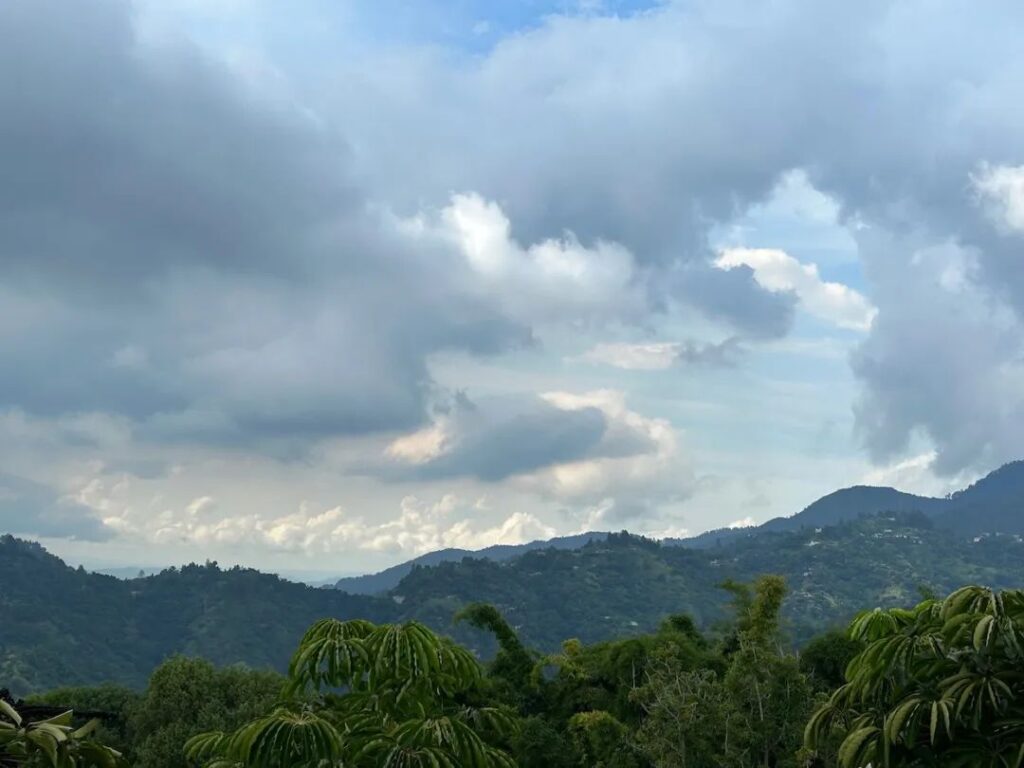
Jamaica
Jamaica is one of the island countries in the Caribbean. It faces Haiti to the east across the Jamaica Strait and is the third largest island in the Caribbean. The coastal areas of Jamaica are plains, the eastern part is mountains, the central and western parts are hilly and limestone plateaus. It belongs to a tropical rainforest climate. The rainy season is from May to June and from September to November, and the dry season is from December to the following March. The central and northern regions are rich in rainfall, and the temperature generally ranges from 22 to 32 degrees, with an annual average temperature of 27 degrees. This is located in an earthquake zone, with fertile volcanic soil, fresh air, a humid climate, and fog and rain all year round, which creates the world-renowned Jamaican Blue Mountain Coffee.
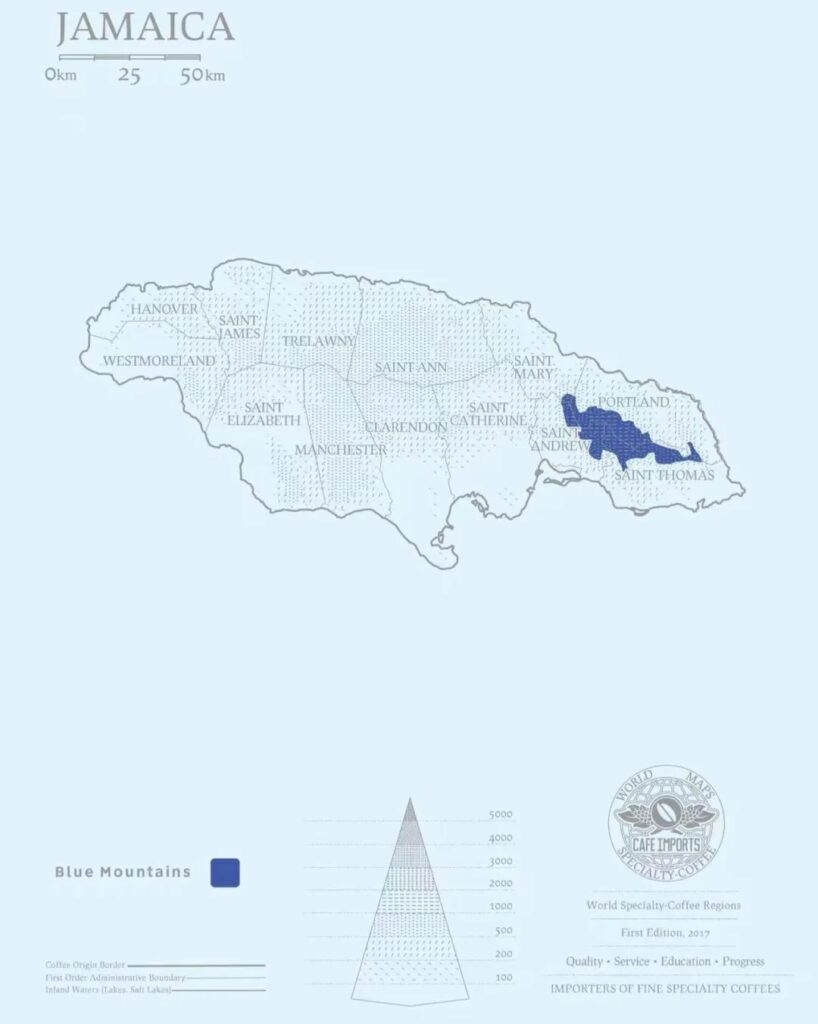
Blue Mountain Coffee Producing Areas
The Blue Mountain range is located in the east of Jamaica, with an altitude of 1000-1700 meters. The mountain is surrounded by the Caribbean Sea. When the weather is clear, the sun shines directly on the sea, and the peaks reflect the blue light of the sea, hence the name. The coffee growing zone in Blue Mountain has fertile volcanic soil, fresh air, a humid climate, and fog and rain all year round, which creates the world-renowned Jamaican Blue Mountain Coffee. In addition, the region also grows Blue Mountain Typica. After more than 200 years, Blue Mountain Typica has evolved a better resistance to diseases than ordinary Typica.
In order to revitalize the coffee industry, in 1891, the government passed a decree, hoping to teach producers knowledge about coffee planting to improve quality, and also improved the infrastructure, enabling coffee to be centralized for processing and grading. In 1944, the Central Coffee Clearing House was also established, and all coffee must be approved by this institution before it can be exported. In addition, the Jamaica Coffee Industry Board (The Jamaica Coffee Industry Board, referred to as CIB) was established in 1950. However, this organization merged with other commodity agencies in Jamaica in 2018 to form the JACRA (Jamaica Agricultural Commodity Regulatory Authority). Now, every barrel of Blue Mountain coffee beans must undergo quality supervision by JACRA. When it was established, the "Coffee Industry Regulatory Law" was also promulgated, which designated the world-famous "Blue Mountain Coffee Growing Area". According to the "Coffee Industry Supervision Law" introduced, the Blue Mountain planting area is distributed in four areas: St. Andrew, St. Thomas, Portland, and St. Mary. Only the Typica variety coffee grown in this area with an altitude of 915 meters to 1700 meters can be named Jamaican Blue Mountain Coffee (Jamaica Blue Mountain).
Clifton Mountain is the oldest coffee producing area still in normal operation in Jamaica. As early as the mid-18th century, Clifton Farms began to grow and produce coffee. The coffee plantations and processing plants here are located in an area with an altitude of 1,300 meters. The sufficient altitude, sufficient sunlight and rainfall, and the volcanic soil rich in minerals provide good growth conditions for the coffee trees.
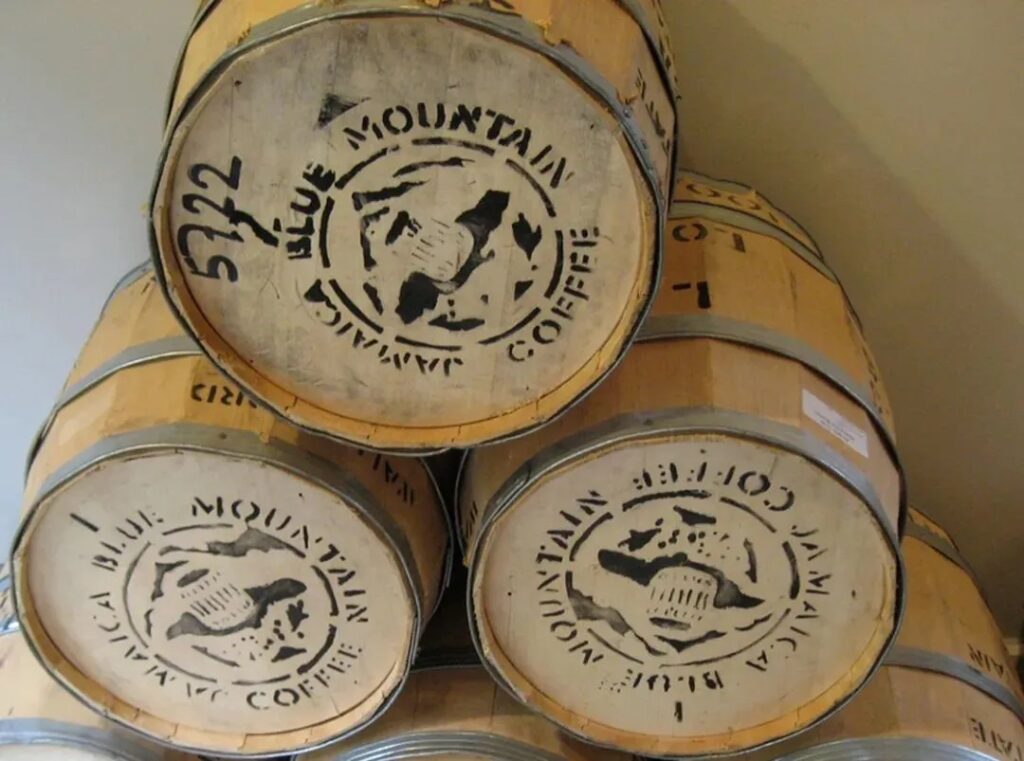
Moreover, Blue Mountain coffee is the only coffee in the world that is packaged and exported in wooden barrels. Only Jamaican Blue Mountain (No. 1, No. 2, No. 3, PB) and Jamaican Alpine (Alpine Top, Alpine PB) can be used, with specifications of 70 kilograms, 30 kilograms, and 15 kilograms. The highest grade Blue Mountain No. 1 coffee must meet the specifications of more than 17 meshes, and the proportion of defective beans cannot exceed 2%. The moisture content is about 10-12.5%. The lid of the wooden barrel is printed with the trademark of Jamaican Blue Mountain coffee, and other grades of Jamaican coffee are exported in 60-kilogram jute bags.
Typica
Typica originated in the southwest of Ethiopia and was brought to Yemen between the 15th and 16th centuries. It was sent to the island of Java in Indonesia in 1696, to Amsterdam in the Netherlands in 1706, and then to the Dutch Guiana (now Suriname). It was introduced to French Guiana and Brazil, and was sent to Martinique in 1723.
After traveling through several countries, in 1730, the British introduced Typica from Martinique to the Blue Mountain in Jamaica for planting, and Typica is one of the oldest coffee varieties. However, due to its weak constitution and poor disease resistance, it is no longer widely planted. However, the Typica in Blue Mountain can adapt well to the local climate and soil, and evolve better disease resistance, which is inseparable from the Jamaican government's persistence and careful planting of Typica varieties for many years.
Pre Street Coffee Jamaican Clifton Manor Blue Mountain No. 1 Coffee Beans
Producing area: Blue Mountain Producing Area
Manor: Clifton Manor
Altitude: 1310 meters
Variety: Blue Mountain Typica
Processing method: washed processing
Flavor: slight citrus acid, nut, chocolate flavor, silky texture, overall balance
The Blue Mountain No. 1 coffee beans of Pre Street Coffee are processed by washed processing and medium to dark roasting, which allows the Blue Mountain No. 1 coffee to present a mellow feeling while retaining a gentle acidity. Pre Street will use the KONO filter cup, a ratio of 1:15, and 90 ℃ water for brewing. You can smell a faint floral fragrance, and the entrance will feel a slight citrus acid, with nut and cocoa flavors, silky texture, and overall balance.


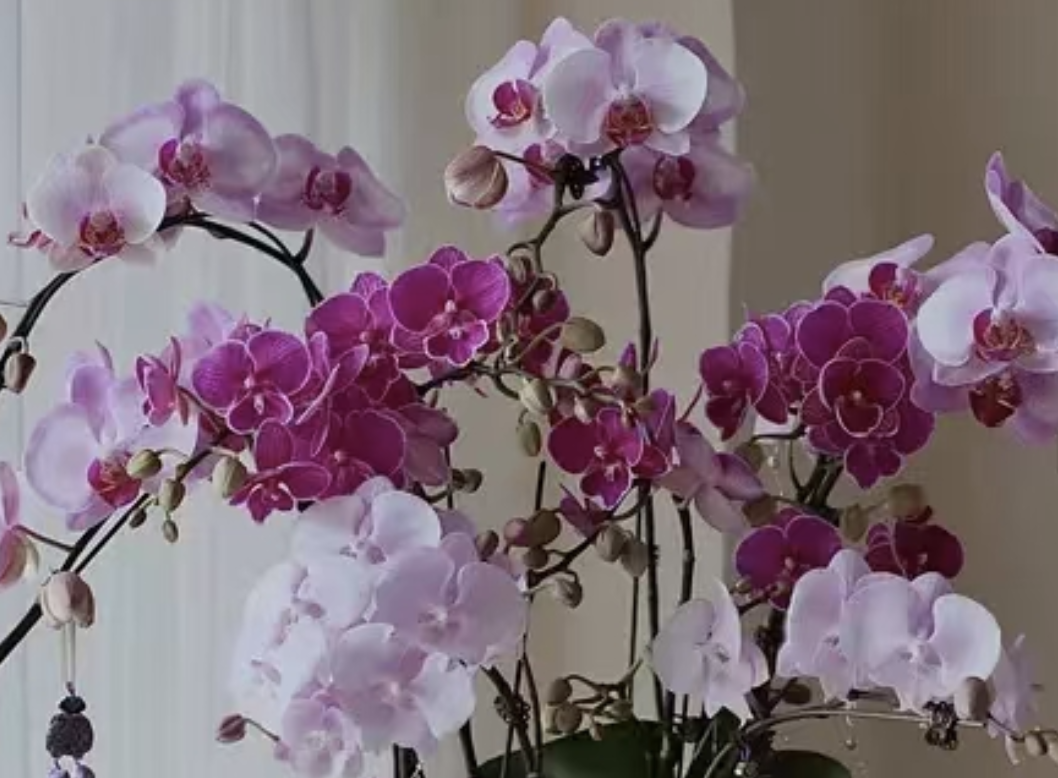
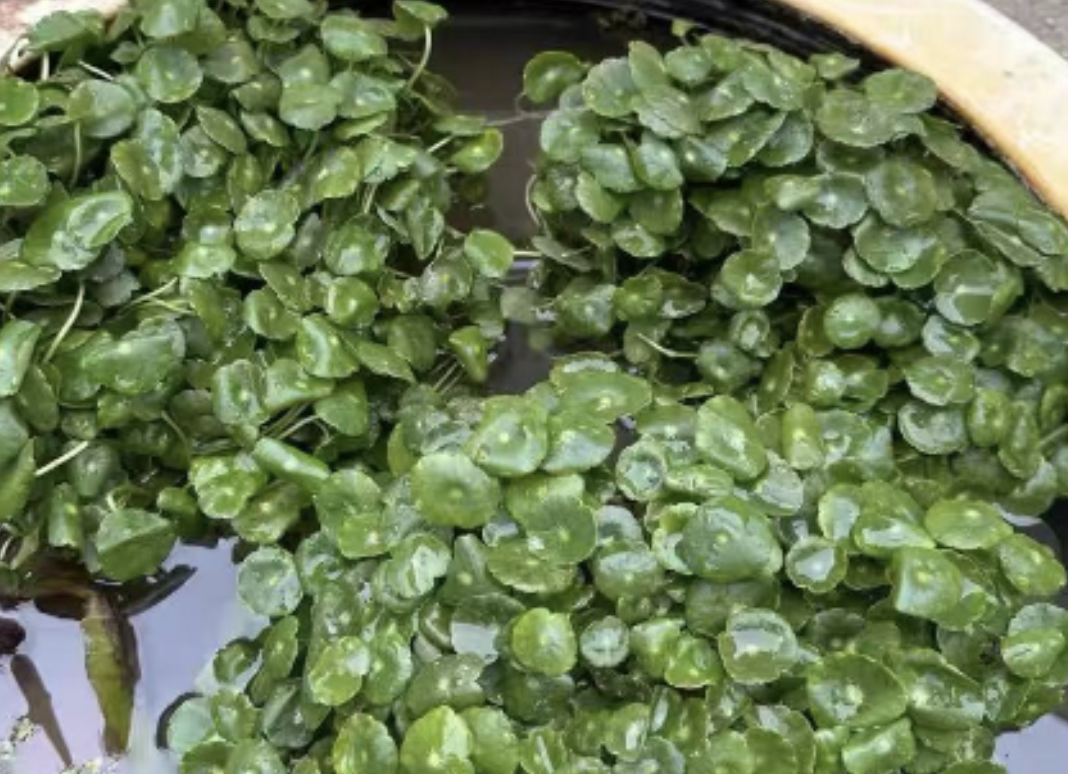
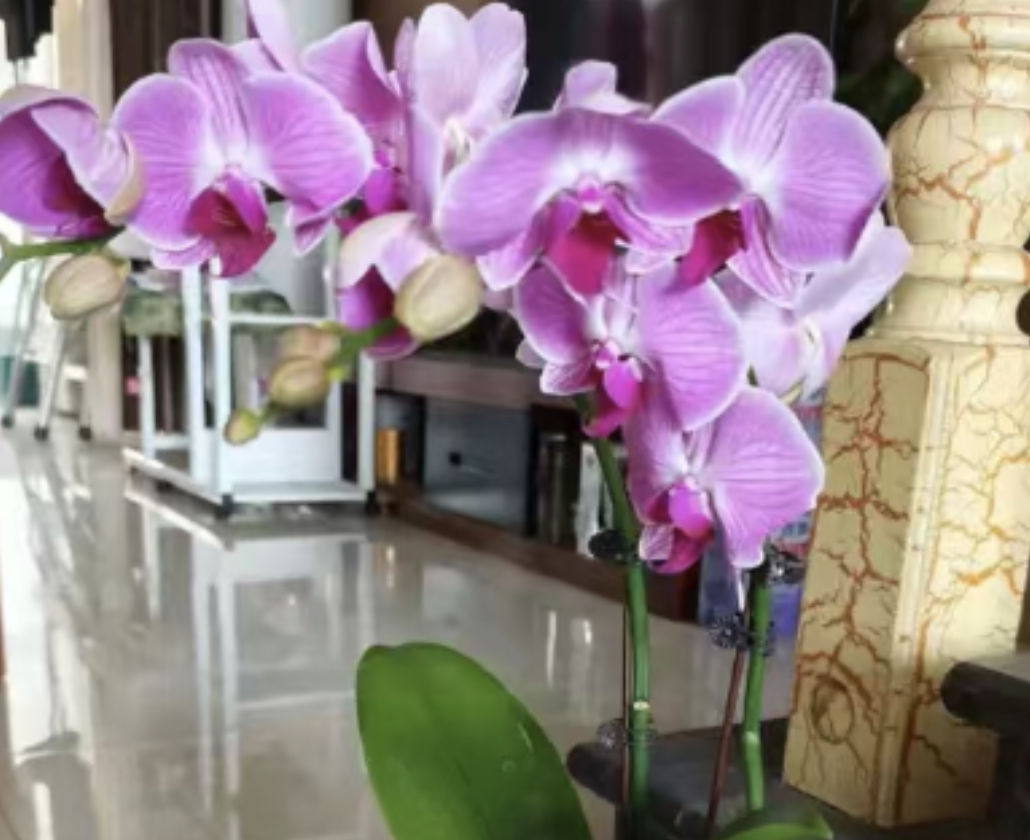
Leave a Reply